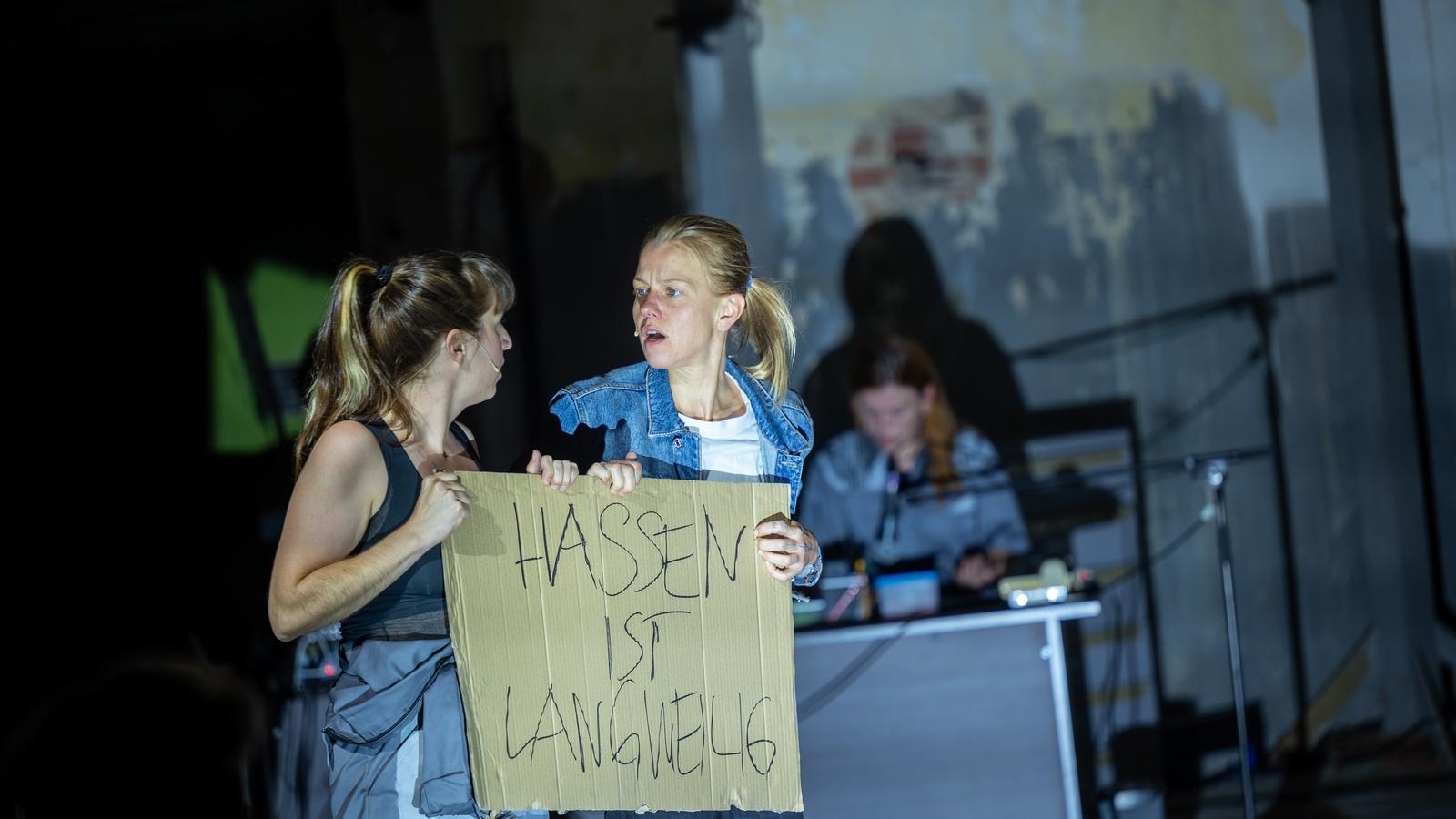Yelena Kostiuchenko's commitment to freedom comes to the theater
The Weimar Kunstfetst hosts the premiere of a production based on his book "My Beloved Country."


Weimar (Germany)The artistic director of the Weimar Kunstfest, Rolf C. Hemke, has concluded his seven-year tenure at the helm of the festival by calling for "living courageously" to continue fighting for a better future at a time when "democratic and political certainties are no longer what they used to be." "Without courageous and conscious action from each of us, we could risk our future recklessly," Hemke warned. Courage and bravery are a testament to this. Russian journalist Yelena Kostiuchenko, who on Thursday attended "very satisfied" the world premiere of a theatrical production based on her book My beloved country (The Second Periphery, 2025) in an old factory built during the Third Reich. Kostiuchenko (Yaroslavl, Russia, 1987) worked for 17 years to Nóvaia Gazeta and it goes She was the first to demonstrate the presence of Russian troops in eastern Ukraine. Exiled in Berlin, she suffered a poisoning attempt.
The theatrical version of her book shines in many ways, starting with the performance of the protagonist, actress and singer Evgenia Borzykh. Also because the rest of the cast—formed by Chulpan Jamatova, Leon Wieferich, Antonia Leichtle, and Johanna Dähler—enhances the story by playing the author's mother and some of the other characters in the articles. And because of the stage design, which evokes a newspaper office or a radio studio. The dramatic arc of Kostiuchenko's character on stage goes from hope to disenchantment, but without giving up, despite having to admit that "now we are the fascists."
The play was brought to life by "a group of women in exile," as the playwright, Polina Borodina, says, working on the selection of texts with the autobiographical section "as a red line." The audience was enthusiastic, but Borodina is rather skeptical about the political impact that theater can have. "I don't know if I would say this play is a struggle, because we lived for years in Russia with the illusion that our art was doing something, but not even Yelena's journalistic work achieved that," says Borodina. "We have no illusions that this piece will change anything, but it probably is changing something for us and for the people who see it. Lena did engage in a political struggle, but what we do here is just art."
Hours before the play began, another Russian author, Nobel Peace Prize-winning historian Irina Scherbakova, exiled in Germany, championed the power of culture. She did so during her speech before the traditional Buchenwald Memorial Concert of the festival, which this year coincides with the 80th anniversary of the camp's liberation. The work selected to commemorate it was A German Requiem, by Johannes Brahms.
For Scherbakova, culture is especially necessary now because "it provides hope in resisting cynicism, opportunism, and, above all, inhuman hatred and contempt for all moral values." Her speech was harsh against Putin for unleashing the war in Ukraine three years ago and for manipulating history to stay in power. "We are in a situation where the security of Europe depends on a cynical pact between a dictator and a narcissistic chōman who doesn't keep his word," she warned. She also believes that culture and democratic institutions are threatened "by both far-right and far-left forces," and noted that since the start of the war in Ukraine, censorship and reprisals have intensified, independent media outlets have been shut down, and books have been removed from libraries. "Putin's ideology has become even more aggressively nationalist," the historian emphasized, before citing imprisoned cultural figures such as director Evgenia Berkovich, playwright Svetlana Petreichuk, and musician Maria Kolesnikova.
The human cause of earthquakes
Another focus of this year's Kunstfest is environmental issues. More specifically, the festival has focused on how the frackingThe construction of skyscraper foundations and oil exploration all contribute to earthquakes. Taiwanese artist Ivan Liu draws attention to this fact with a sound installation at the Bauhaus Museum, consisting of an earthquake simulator that he has transformed into a kind of musical instrument. The show also includes a projection of images of earthquake-ravaged sites to raise awareness of the impact of these practices.
Ivan Liu is part of the delegation of Taiwanese artists participating in this year's Kunstfest. This Saturday, the company Focasa Circus, a pioneer in its country in opening new horizons in the martial tradition of the Chinese circus with the incorporation of elements of dance-theatre, also performed at the German National Theatre in Weimar. In fact, the directors of the show, titled Moss (Moss), are the duo Peculiar Man, formed by the dancers and choreographers Jan Möllmer and Tsai-Wei Tien, who have worked in the companies of Dimitris Papaioannou and Pina Bausch.
A Moss, The five performers meet in an abandoned house, which they turn into a resource for their juggling, diabolo, and acrobatic exercises. For the directors, this house is a place of forgotten memories and dreams, and they also add a touch of humor to the characters' relationships. "Dancers and circus artists share a passion for movement," say Jan Möllmer and Tsai-Wei Tien. "Focasa Circus is a courageous company," they add, "because it combines tradition with street and indoor theater, and it also has a big top. It wants to play all genres."
